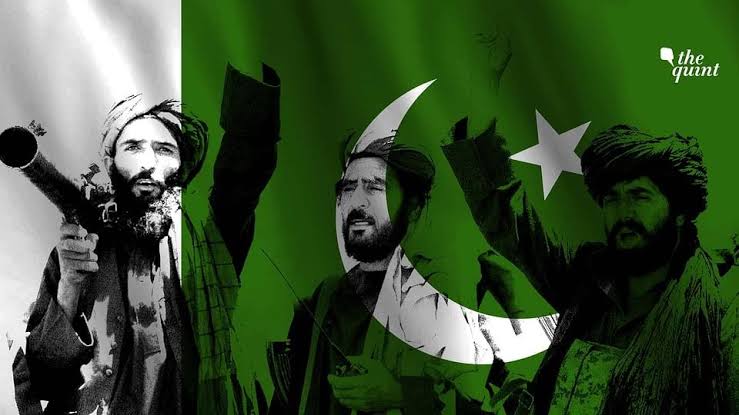In a development of significance, the Pakistani government and the Tehrik-e-Taliban Pakistan (TTP) have reached an accord this month, agreeing to a temporary ceasefire set to endure until May 30th. This ceasefire is anticipated to be extended, thereby fostering a platform for further rounds of dialogue.
These ceasefire deliberations found their venue in Afghanistan, facilitated by the Afghan Taliban. The negotiations saw the participation of representatives from the Pakistan military, tribal leaders, and a high-ranking TTP delegation. In a parallel effort, the Pakistani government discreetly released thirty TTP detainees from key Taliban strongholds spanning North Waziristan, South Waziristan, Dera Ismail Khan, Bajaur, Swat, Khyber, and Dir. Although the government has not yet issued an official declaration concerning this release of prisoners.
While the specifics of these talks have not been divulged to the media, press releases have been the primary source of information. Sources proximate to the TTP indicate that the group has presented demands to the Pakistani delegation. These demands encompass the release of their incarcerated members, the military's withdrawal from Waziristan and the tribal areas, restoration of security to paramilitary formations, reinstatement of the previous tribal areas status, enforcement of Sharia law, and the release of Aafia Siddiqui, a Pakistani detainee at United States. While progress has been achieved on the matter of releasing certain TTP members, the source conveys that "three other conditions remain formidable challenges."
Foremost among these conditions are the implantation of Sharia law and the withdrawal of the army from the tribal territories. However, these two pivotal conditions have been persistently rejected. This resistance to the TTP's demands can be traced back to the Swat Peace Agreement of 2009 and the subsequent implementation of the Shariah Enforcement Bill in Malakand. These actions have spurred violence and extremism in the Swat region and its environs. Consequently, Pakistani authorities have exhibited a reticence towards embracing Sharia law and compromising with both religious factions and the TTP. The government's approach is aimed at negotiating with the TTP on its own terms, encouraging the Taliban to desist from hostilities in exchange for fewer concessions and less contentious requisitions.
Following the withdrawal of US and NATO forces from Afghanistan and the diminution of Indian influence within Afghanistan, Pakistan has attained a secure and collaborative atmosphere along its Afghan border. Consequently, the requirement for an extensive troop presence along the Durand Line has waned. Despite this, the Pakistani military maintains an inclination towards a persistent presence within the tribal regions. While showing flexibility in potentially housing troops within barracks and bases, the military could potentially cede security responsibilities to paramilitary forces, hewing to the terms of their agreement with the TTP.
Commencing in February of the preceding year, negotiations between the TTP and the Pakistani government were initiated, with the Afghan Taliban and tribal leaders as intermediaries. During that time, the Pakistani Taliban had laid out their demand for the release of over a hundred prisoners, including three senior members of the group.
Pressures on the Afghan Taliban from Pakistan
The Afghan Taliban's attention towards the TTP predicament sharpened as the group escalated attacks within tribal regions, prompting Pakistan to conduct airstrikes targeting TTP-affiliated entities on Afghan territory.
Pakistan's approach toward the Afghan Taliban entails two distinct options. The first involves encouraging the TTP to engage in negotiations and ultimately cease their attacks in Pakistan and tribal areas. The second option contemplates a scenario in which negotiations falter and the Taliban government fails to expel the TTP from Afghan soil. In such a case, the possibility of relocating the TTP to northern Afghanistan, away from the Durand Line border region, is contemplated.
This proposition draws parallels with a historical occurrence when British India impelled the previous rulers of Afghanistan to take similar action. Fighters who opposed British India in the Waziristan and tribal areas were predominantly based in Loya Paktia. This proximity facilitated easy infiltration into the tribal regions, enabling recruitment and bolstering the militant ranks. However, when these fighters were resettled in Afghanistan's northern provinces, their influence in Waziristan diminished. Despite this, the TTP might find the northern Afghan territories unfavorable due to the detrimental impact on recruitment, supply lines, and communication networks. Moreover, the presence of ISIS in this area poses a substantial challenge, particularly the Uzbek, Uighur, and Turkmen fighters with whom the TTP shared connections in Waziristan and tribal regions. This scenario raises the likelihood of the TTP being embroiled in a fresh conflict if situated in northern Afghanistan, a concern that the Afghan Taliban might be cognizant of.
A Comeback to Tribal Territories
Past peace agreements between Pakistan and various TTP factions have invariably been accompanied by significant concessions, predominantly extended at the tribal level. From 2004 to 2009, figures like Nek Muhammad Wazir, Baitullah Mehsud, Maulana Fazlullah, Maulvi Nazir, and Hafiz Gul Bahadur established official offices in bazaars, gradually assuming control over various administrative aspects upon agreements with the government. Areas like Wana saw them overseeing security, judiciary, municipal functions, traffic management, and revenue collection.
Among the options mulled over by segments within Pakistan's ruling class is the potential establishment of a local tribal militia (Aman Lashkar) to oversee the TTP, thereby entrusting them with maintaining security and stability within their region. This approach aims to create a reciprocal accountability dynamic between the tribes and the TTP. While this concept has been attempted previously, it was assigned to anti-TTP groups that were relatively frail both in tribal and organizational terms. Historically, the tribal army and the so-called 40th Security-Disciplinary Force (Salweshtai) have assumed roles linked to religious enforcement.
Former Prime Minister of Pakistan, Imran Khan, voiced sentiments at an Organization of Islamic Cooperation (OIC) meeting in December 2021, suggesting that Western powers should be mindful of Afghan cultural norms while considering human rights, women's rights, and education in Afghanistan. He implied that certain practices, like girls' education, might be perceived as cultural matters among Pashtuns. This stance was met with criticism from Pashtun political leaders and human rights advocates spanning the Durand Line. Considering this backdrop, it remains possible for the government and the military to pave the way for a discreet and restricted implementation of Sharia law under the guise of "Pashtun tradition and customs," thus avoiding regional or international backlash.
Nevertheless, the TTP's potential reentry into Waziristan and the tribal areas does not necessarily translate to assured peace and a prolonged ceasefire. The Pakistani Taliban currently grapple with a scarcity of young fighters, particularly suicide bombers. Reviving their specialized madrassas is pivotal in bridging this gap. Moreover, several tribes might not be amenable to the TTP's return to the tribal regions. Despite this, opposing voices are chiefly emanating from nationalist parties within the tribunal system. The Pashtun Tahafuz Movement (PTM), a youthful and enlightened movement, remains apprehensive about the ongoing negotiations. It lacks faith in the military's intentions and harbors concerns about the possibility of the tribal areas falling back under the sway of militants, thus restoring the previous status quo. Alamzeb Mehsud, a prominent member of the PTM, conveyed this sentiment during a tribal peace jirga in Shawal, South Waziristan, asserting that the tribes and clans cannot be held accountable for the outcome of talks between the government and the Taliban. Mehsud contended that the army desires to exert control over the Taliban through the tribes.
The Turi tribe of Kurram Agency, with its memories of the TTP and the Haqqani network, holds representation in the government's cabinet. It is hoped that this representation will mitigate the concerns of this tribe.
A History of Fractured Agreements
Past agreements between the Pakistani government and the Taliban have repeatedly faltered, with militant groups invariably emerging stronger due to the benefits and incentives provided by these agreements. The government is disinclined to grant religious legitimacy to the TTP in the enforcement of Sharia law, and the military and political parties within Pakistan exhibit a reluctance to acquiesce. The military's presence within the tribal regions is more formidable than ever, representing a pivotal pillar of Pakistan's national security.
In a context where the fundamental prerequisites of the Taliban appear unfeasible, prospects for successful negotiations or an enduring ceasefire seem dim. Nonetheless, the government might possess an alternative avenue. Given the region's evolving geopolitical landscape, the existence of a robust TTP as a potent force could imperil Pakistan. Sovereign entities have various strategies at their disposal to manage such movements, one of which involves a change in leadership. A shift in the TTP's leadership could allow Islamabad to infiltrate the group's ranks and gradually exercise control over it.





